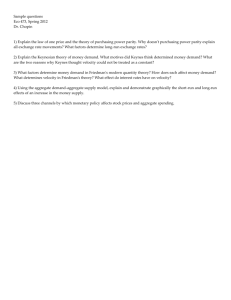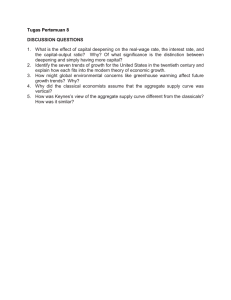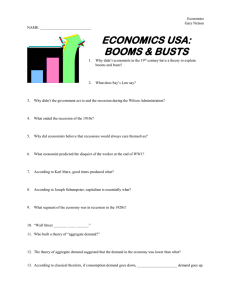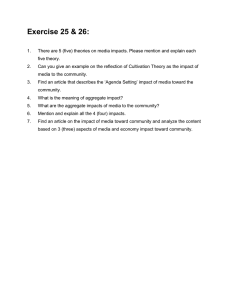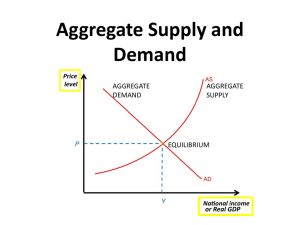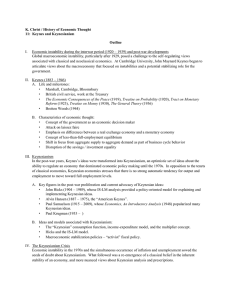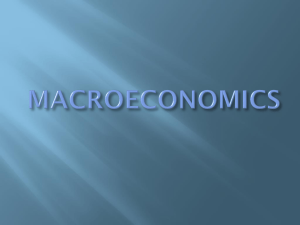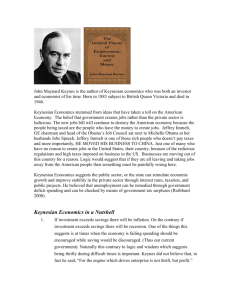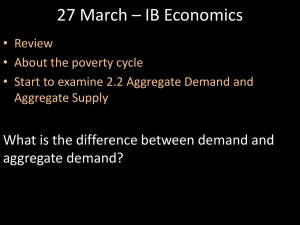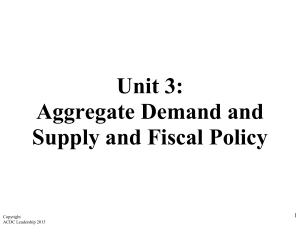"Keynesian economics" Across
advertisement
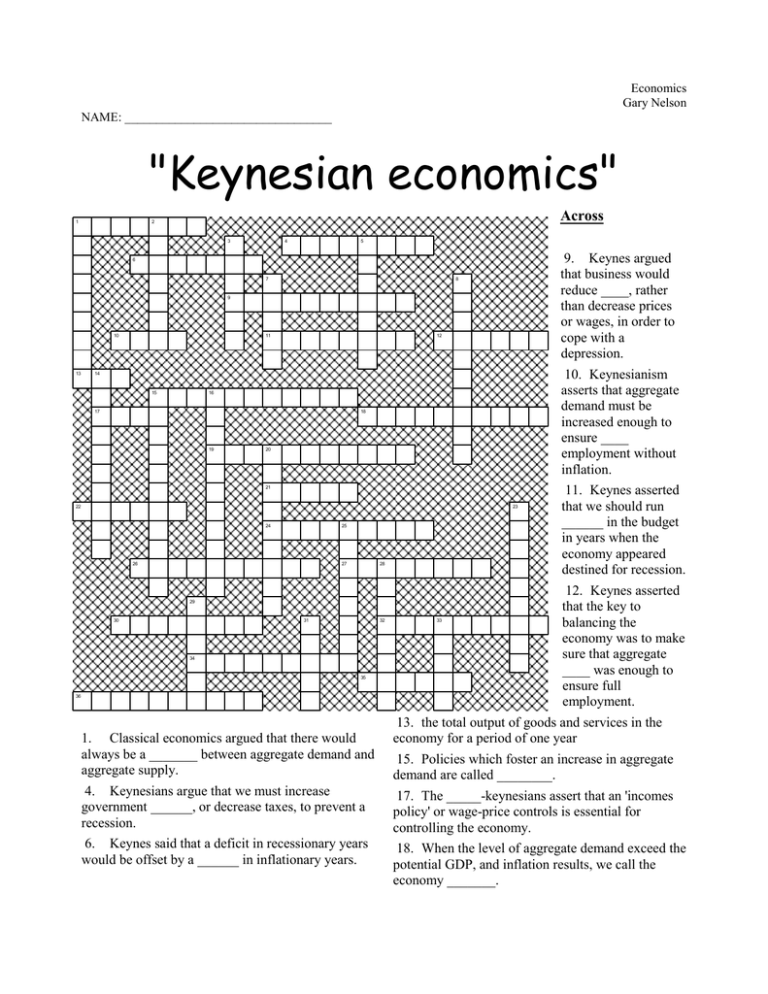
Economics Gary Nelson NAME: _________________________________ "Keynesian economics" 1 Across 2 3 4 5 9. Keynes argued that business would reduce ____, rather than decrease prices or wages, in order to cope with a depression. 6 7 8 9 10 13 11 12 10. Keynesianism asserts that aggregate demand must be increased enough to ensure ____ employment without inflation. 14 15 16 17 18 19 20 21 22 23 24 25 26 27 28 29 30 31 32 34 35 36 1. Classical economics argued that there would always be a _______ between aggregate demand and aggregate supply. 4. Keynesians argue that we must increase government ______, or decrease taxes, to prevent a recession. 6. Keynes said that a deficit in recessionary years would be offset by a ______ in inflationary years. 11. Keynes asserted that we should run ______ in the budget in years when the economy appeared destined for recession. 12. Keynes asserted that the key to balancing the economy was to make sure that aggregate ____ was enough to ensure full employment. 13. the total output of goods and services in the economy for a period of one year 33 15. Policies which foster an increase in aggregate demand are called ________. 17. The _____-keynesians assert that an 'incomes policy' or wage-price controls is essential for controlling the economy. 18. When the level of aggregate demand exceed the potential GDP, and inflation results, we call the economy _______. 19. Classical theory asserted that there would always be an _______ between aggregate demand and aggregate supply. 30. In order to prevent a recession, a Keynesians would support an ______ in government spending if a recession were threatening. 21. Keynes asserted that businesses would hire ____ workers in a recession and produce _____ goods, resulting in the hiring of still _____ workers. 32. The Keynesian _____ school of economics seeks ti integrate Keynes' teaching with classical economic theories. 22. Government policy dealing with taxing and spending is called ____ policy; Keynes suggested that this was the key to controlling the economy. 34. Keynes suggested that an ____ could persist between aggregate supply and aggregate demand. 24. total 26. Turning an increase in the deficit into an increase in the money supply is called ______ the debt. 35. ______ was the author of The General Theory of Employment, Interest, and Money. 36. According to Keynes, _______ must take action to ensure the proper level of aggregate demand. 27. The type of unemployment that occurs in a recession is called _____ unemployment. Down 1. Monetarists believe that _____ of funds destroys the effects of Keynesian synthesis. 2. Classical economics held that money is ____. 3. Says' law stated that ____ creates its own demand. 5. Keynes said that a ______ in recessionary years would be good. 7. Classical theory held that ______ always exchange for goods. 8. GDP = consumption + _______ + government 14. Classical economics could not explain the Great ________. 15. inflation and recession at the same time 16. People who believe that controlling the money supply is the key to controlling the economy 20. Keynes believed that ____ was caused by a level of aggregate demand that exceeded aggregate supply. 23. The amount of GDP that the economy is capable of producing is called _____ GDP. 25. 'Goods always ______ for goods.' 28. GDP = _______ + investment + government 29. money is a _____ of exchange 31. ______ is neutral in classical theory. 33. Decreasing ____ will stimulate private sector demand, according to Keynesian theory.
